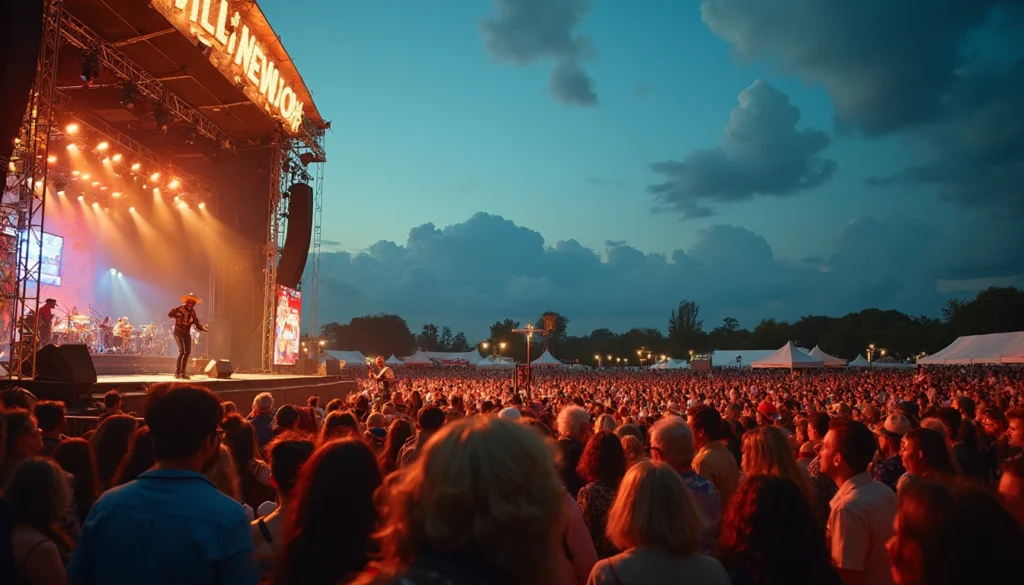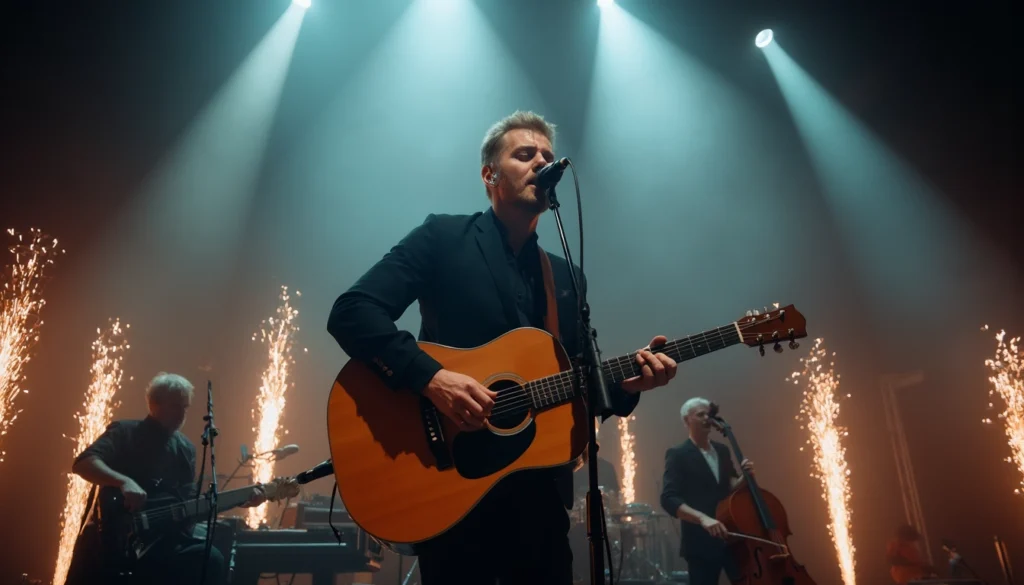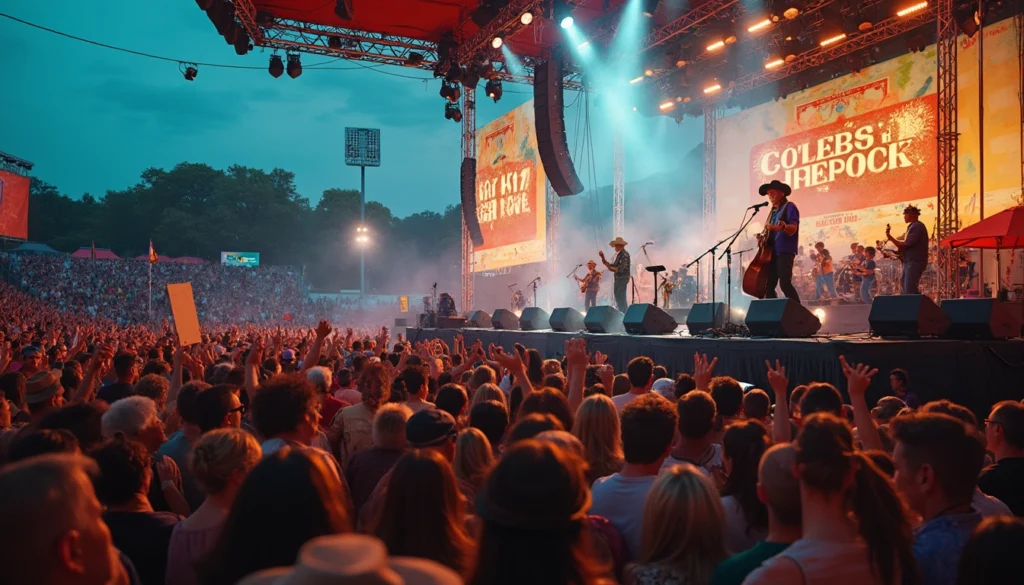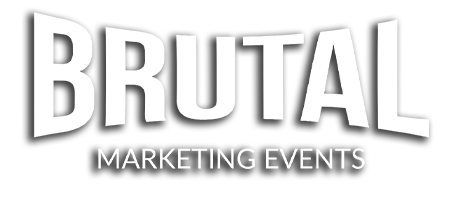Hosting a concert is an exciting opportunity to bring music fans together, create unforgettable memories, and generate revenue. However, many concert organizers find themselves struggling to turn a profit. While it may seem like all you need is a great lineup and a popular venue, there’s a lot more involved in making a concert financially successful. In reality, concerts often fail to be profitable due to common pitfalls in planning, marketing, pricing, and logistics. In this article, we’ll dive into five key reasons why concerts might not turn a profit and explore actionable solutions to help you avoid these mistakes.
1. Inadequate Audience Targeting
When it comes to concert promotion, knowing your audience is everything. Without a clear understanding of who your potential ticket buyers are, it’s easy to waste time and money on marketing efforts that don’t pay off. A concert’s success starts with knowing your audience. Without a clear understanding of who your potential attendees are, your marketing efforts may fall flat, leading to unsold tickets and wasted budget. Let’s explore the most common mistakes in audience targeting.

“A successful concert starts with knowing your audience—it’s the foundation for every profitable event”
Lack of Defined Audience Personas
One of the most common mistakes concert promoters make is not taking the time to define clear audience personas. So, what exactly is an audience persona? It’s a fictional profile that represents your ideal concert-goer, including specific details like age, interests, location, and even their typical spending habits. By understanding who your ideal attendees are, you can make sure your marketing efforts are targeted and relevant.
Without developing these personas, your marketing strategy may be too broad and generic, which means your promotions might not connect with the right people. For example, if you’re organizing a concert for an indie rock band, the audience you’re trying to reach is likely different from those who would attend a jazz performance. Tailoring your ads and promotions to reach specific fans makes a significant difference in maximizing your ticket sales.
When we talk about ads that don’t convert, we’re referring to marketing efforts that don’t lead to the desired action—in this case, ticket purchases. If your ads aren’t effectively reaching the right audience, you could end up wasting money on ads that don’t turn interest into sales. To convert means turning a potential concert-goer into an actual ticket buyer, and without a focused approach, you’re missing out on that opportunity.
Missing Niche Markets
Beyond focusing on general demographics, there are niche markets that can significantly boost your ticket sales. These could include genre-specific enthusiasts or loyal local fans who frequently attend concerts in their area. By understanding these specialized groups, you can better align your marketing strategy to attract those who are already interested in similar events.
Tapping into these niche markets by promoting your event on specialized forums, music blogs, or fan communities can help you reach dedicated fans who are more likely to purchase tickets. For example, if your event features a tribute band, reaching out to fans of the original band on social media can create a buzz and drive ticket sales among that specific audience. This kind of targeted marketing ensures your promotions are seen by people who are genuinely interested, maximizing your return on investment (ROI).
Insufficient Use of Data Analytics
Data analytics can provide invaluable insights into your audience’s behaviors and preferences. If you’re not using data to inform your marketing strategies, you’re missing out on opportunities to optimize your efforts and maximize event profitability. By analyzing past event data, social media engagement, and website traffic, you can pinpoint which promotions are working and which are not, helping you focus on what drives the best results.
For example, if you notice a high click-through rate (CTR) on Instagram ads but low engagement on Facebook, it may be worth reallocating your ad budget to the more effective platform. This data-driven approach allows you to fine-tune your campaigns, ensuring that your marketing dollars are spent where they will generate the most impact.
“Want to learn more about targeting the right audience? Check out our in-depth guide on effective event marketing strategies here.”
2. Poor Promotion Timing
Marketing your event is not just about what you promote, but also when you promote it. Poor timing can lead to missed opportunities and low ticket sales.

“Timing is the heartbeat of event promotion—start the pulse early, and watch the excitement grow“
Starting Marketing Too Late
One of the most common reasons concerts don’t sell out is that promotions start too close to the event date. Large venues or high-profile events require weeks, if not months, of advance notice to build excitement. If you wait too long to start your marketing efforts, you may not have enough time to reach your target audience and drive ticket sales effectively.
Begin promoting your event as soon as the date is confirmed. Use a countdown strategy, where you gradually release details about the event, like artist lineups or special guests, to keep fans engaged. This approach helps maintain momentum and builds anticipation, making fans more likely to buy tickets as the event date approaches.
Inconsistent Promotional Efforts
Consistency is key when it comes to promotion. Sporadic posts and occasional ads won’t be enough to keep your event top-of-mind for potential attendees. To maximize your event’s visibility, create a content calendar and stick to a regular posting schedule across your social media channels, email newsletters, and paid ads. This helps build anticipation and keeps your event in front of fans as the date approaches, ensuring that you’re always present in their feeds and inboxes.
3. Limited or Misaligned Marketing Channels
Choosing the right platforms to promote your concert is just as important as the message itself. If your audience isn’t seeing your ads, they won’t be buying tickets.
Ineffective Use of Social Media
Social media is one of the most powerful tools for concert marketing, but many promoters either don’t leverage it enough or focus on the wrong platforms. To state the obvious, if your target audience is primarily younger fans, platforms like Instagram and TikTok are far more effective than Facebook, which skews towards an older demographic. Ignoring this can result in missed opportunities to connect with the people who are most likely to buy tickets.
Make sure to optimize your social media strategy by using platform-specific features. For instance:
- Use Instagram Stories and Reels to share behind-the-scenes content or countdowns, keeping fans engaged and excited.
- Consider hosting live sessions where artists can answer fan questions, perform a quick set, or simply talk about what they’re excited about for the event. These interactive elements build a personal connection with your audience and create buzz.
Ignoring Email Marketing Opportunities
Email marketing remains one of the most cost-effective ways to reach your audience, especially when targeting repeat customers. Many promoters overlook the value of maintaining a strong email list, but this is a powerful channel for converting casual interest into ticket sales.
Build a mailing list of past attendees and segment it based on preferences, ticket tiers, or past interactions. This way, you can send personalized emails with exclusive offers, early-bird discounts, or last-minute reminders as the event date approaches. For example:
- Early access emails: Offer your mailing list subscribers first dibs on tickets before they’re released to the general public.
- Limited-time discounts: Create urgency by offering time-sensitive promotions only available via email.
- Reminder emails: Send countdown emails in the days leading up to your event to keep your concert top-of-mind.
Studies show that personalized emails have a much higher open and click-through rate, which means they are more likely to convert into ticket sales. By keeping fans informed and excited, you’re turning potential interest into actual purchases.
Insufficient Use of Paid Ads
Running paid advertising campaigns without a clear strategy can quickly eat into your budget without delivering results. The key to maximizing your ad spend is knowing which platforms are most effective for reaching your audience and using data-driven insights to guide your approach.
- Retargeting ads: Focus on reaching people who have already shown interest in your event—like those who visited your event page or interacted with your posts but didn’t complete a purchase. Retargeting ads can nudge them back to buy tickets.
- Optimizing ad placements: Use data from past campaigns to identify which platforms and ad placements yield the highest return. For instance, if you find that Instagram Stories drive higher conversions than Facebook feed ads, adjust your strategy to focus more on Stories.
- Additionally, leverage geo-targeting to focus on regions where you know you have a strong fan base or where ticket sales are lagging. This way, you’re not wasting ad dollars on audiences that are unlikely to attend.
4. Inefficient Pricing Strategies
Pricing is one of the most critical factors that determine a concert’s profitability. However, it’s also one of the most challenging aspects to get right. Many concerts fail to generate profit simply because they don’t have a strategic approach to pricing. Let’s explore some common pricing mistakes and how to avoid them.

“A flexible pricing strategy opens doors for more fans“
Lack of Tiered Pricing Options
When you only offer a single ticket price, you miss out on the opportunity to cater to a wider range of attendees with different budgets. Tiered pricing allows you to provide multiple ticket options, each offering different levels of access and perks. For instance, consider offering general admission, VIP packages, and premium seating options.
VIP packages could include early entry, exclusive merchandise, or a chance to meet the artists. Premium seating might offer a better view, comfortable seats, or access to a private lounge. These higher-priced tickets appeal to fans who are willing to pay extra for a unique experience. By offering tiered pricing, you increase your chances of selling out while maximizing revenue per attendee.
Another benefit of tiered pricing is that it creates a sense of exclusivity. Fans who opt for the premium packages feel like they’re getting something special, which can enhance their overall concert experience. Plus, it allows you to increase revenue without simply raising prices for everyone, which could deter budget-conscious fans.
Inflexible Pricing and Lack of Adjustments
Pricing should not be a one-time decision but a flexible strategy that evolves based on demand. Dynamic pricing is a proven method used by industries like airlines and hotels to adjust prices in real time. Concert organizers can use this tactic to capitalize on high demand. For instance, when ticket sales start to pick up, you can gradually increase prices to maximize revenue.
On the flip side, if ticket sales are slow, you might need to adjust prices downward or offer discounts to boost sales. Flash sales, limited-time offers, or bundled ticket packages can help stimulate interest. For example, offering a “buy two, get one free” deal can attract groups of friends who might be on the fence about attending.
Being flexible with your pricing strategy also helps you respond to competition. If a similar concert announces a lower ticket price, adjusting your pricing can help you stay competitive. The key is to monitor sales trends closely and be prepared to make quick adjustments to optimize revenue.
5. Overlooking Venue Costs and Logistics
Choosing the right venue and managing logistics are critical for a profitable concert. High expenses can eat into your profits, even if you have strong ticket sales.
A well-chosen venue can set the stage for an unforgettable concert, but it can also eat into your profits if not managed wisely. Venues and logistics are among the most significant expenses when hosting a concert. Mismanaging these areas can quickly turn a profitable event into a financial drain.

“Proper planning and budget management are essential for keeping your concert profitable”
Unnecessary Venue and Equipment Expenses
Selecting the right venue is crucial for keeping your costs manageable. A common mistake is choosing a venue that’s too large for your expected audience size. While it might be tempting to book a big venue to accommodate more fans, it’s a risk if you can’t sell enough tickets to fill the space. This can leave you paying for unused capacity, which significantly reduces your profit margins.
Additionally, be mindful of the equipment you rent for the event. It’s easy to get carried away with fancy sound systems, lighting setups, and special effects, but these costs add up quickly. Focus on what’s essential for the concert experience and negotiate with vendors for better rates. For example, you can save money by bundling equipment rentals with the venue or opting for in-house services rather than third-party providers.
Mismanagement of On-Site Resources
Concerts involve many moving parts, from staffing to vendor coordination. Poor management of on-site resources can lead to delays, increased costs, and a negative experience for attendees. For example, if you don’t have enough staff for ticketing or security, it can lead to long lines, frustrated fans, and ultimately, lost sales.
To avoid these pitfalls, consider using event management software to streamline operations. This can help with everything from scheduling staff shifts to tracking vendor deliveries. Proper coordination ensures that you’re not overspending on last-minute fixes or unnecessary overtime, which can eat into your profits. Efficient resource management can also improve the attendee experience, leading to positive reviews and repeat attendance for future events.
Underestimating Hidden Fees and Additional Charges
One of the most overlooked aspects of concert planning is the hidden fees associated with venues and logistics. These can include costs for permits, security, parking, insurance, and even waste disposal. If these expenses aren’t accounted for in your budget, they can quickly add up and eat into your profit margins.
For instance, some venues may require you to use their in-house caterers or security personnel, which can be more expensive than third-party options. It’s essential to read contracts carefully and negotiate wherever possible to avoid unexpected costs. Additionally, plan for contingencies, like extra security if ticket sales exceed expectations or insurance coverage for potential liabilities. The more prepared you are, the better you can control your expenses and improve your event’s profitability.
Ready to Optimize Your Event for Profitability?
A successful concert isn’t just about selling tickets; it’s about making sure your event is profitable. By targeting the right audience, promoting at the right time, using effective channels, pricing strategically, and managing costs, you can maximize your event’s profitability. Keep these tips in mind to avoid the common pitfalls that can hurt your bottom line.
Struggling to make your concerts profitable? Let us help! Check out our comprehensive guide to improving event ROI and start maximizing your profits today.






